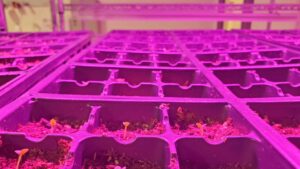Building Canadian Agriculture from the Seed Up

First, momentum is building towards a business environment in this country that encourages investment in innovation in the seed industry. For example, the federal government is considering changes to legislation impacting plant breeder rights which would bring our country out of the backwoods and put us on the same stage as our major trading partners. This would be accomplished through legislation to make Canada compliant with the 1991 UPOV Convention.
As it currently stands, our country is literally passed over when it comes to international investment in crops like wheat as investors commit resources to other countries around the world. The reason, they tell us, is simple—unless there are other intellectual property protection tools available, such as trait patent protection or identity preservation contracts, it is difficult in Canada to earn a sufficient rate of return on many crops to justify any investment, given a lack of certified seed sales. In contrast, there has been significant investment in canola, corn and soybeans where patented traits and/or hybrid production systems have driven not only investment but, more importantly, rapid producer adoption of new varieties and technologies due to the yield and quality advancements realized on the farm.
As a farmer, I feel quite strongly that we will not see step advances in crops like wheat until producers collectively recognize and embrace the fact that private and public investment is required to move forward. Private investment will not occur unless, one, we have a regulatory environment that supports innovation and, two, users reimburse innovators at a fair rate for their efforts in developing and commercializing the innovation.
Economic gains on the farm start with seed. Without investment—private or public—it can be fairly argued that we are not only short-changing our yield and profit potential on the farm, but we are also abdicating in part the opportunity and responsibility to enhance our role as a supplier of food and fibre to the world. This is ironic given that agriculture is critical to the economic health of much of our country.
“Now is the time to be congruent in our policy development by upgrading regulations.”
My goal this year is to support CSTA’s efforts to educate fellow producers on the importance of investment in seed technology and, tied to this, the importance of updating the regulatory framework that supports intellectual property protection in this country. Without regulatory changes, Canada will continue to lose the race of innovation in crops, when we should in fact be leading the pack.
It is interesting that in the areas of trade cooperation and the development of international standards for low-level presence, Canada has taken a leadership role on the world stage. Now is the time to be congruent in our policy development by upgrading regulations that influence innovation investment in this country.
Second, a priority of increasing importance is attracting talent to not only agriculture, but the seed sector in particular. For generations we told our youth that agriculture was not the place to be. Today, the opposite is true, and opportunities abound within the industry. We need to continue to educate students of all ages—in not only rural, but more importantly, urban areas—about the career opportunities available in agriculture.
Our efforts, through initiatives including the Campus Ambassador Program and the Future Influencer panel at Grow Canada, have created awareness in this area. We need to continue to invest as an industry and as individual companies in the area of attracting and recruiting talent. These are the seeds of our future. Like the upcoming harvest, the health of our industry is tied to our success in recruiting and harvesting the best talent available—talent that will lead the seed industry of tomorrow.
Stephen Denys, 2012/13 President, Canadian Seed Trade Association














